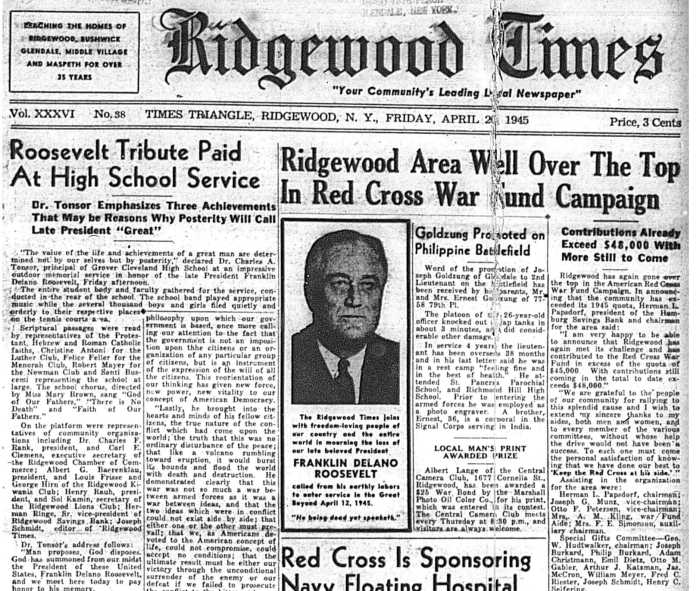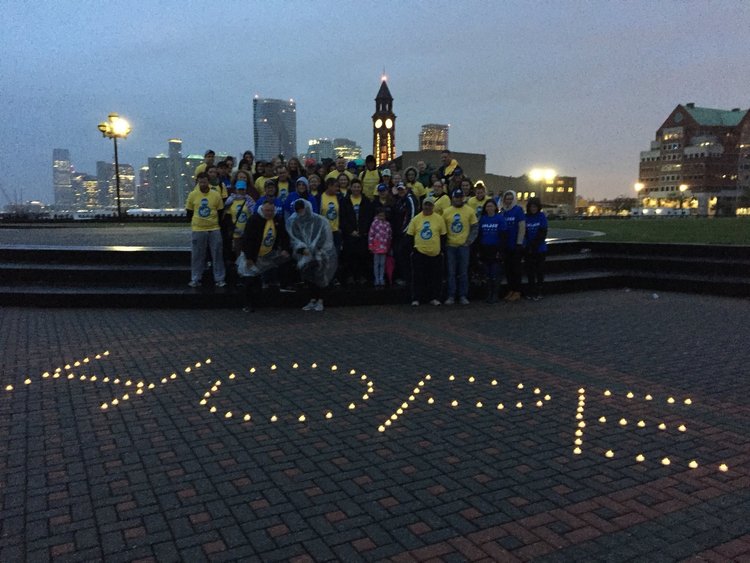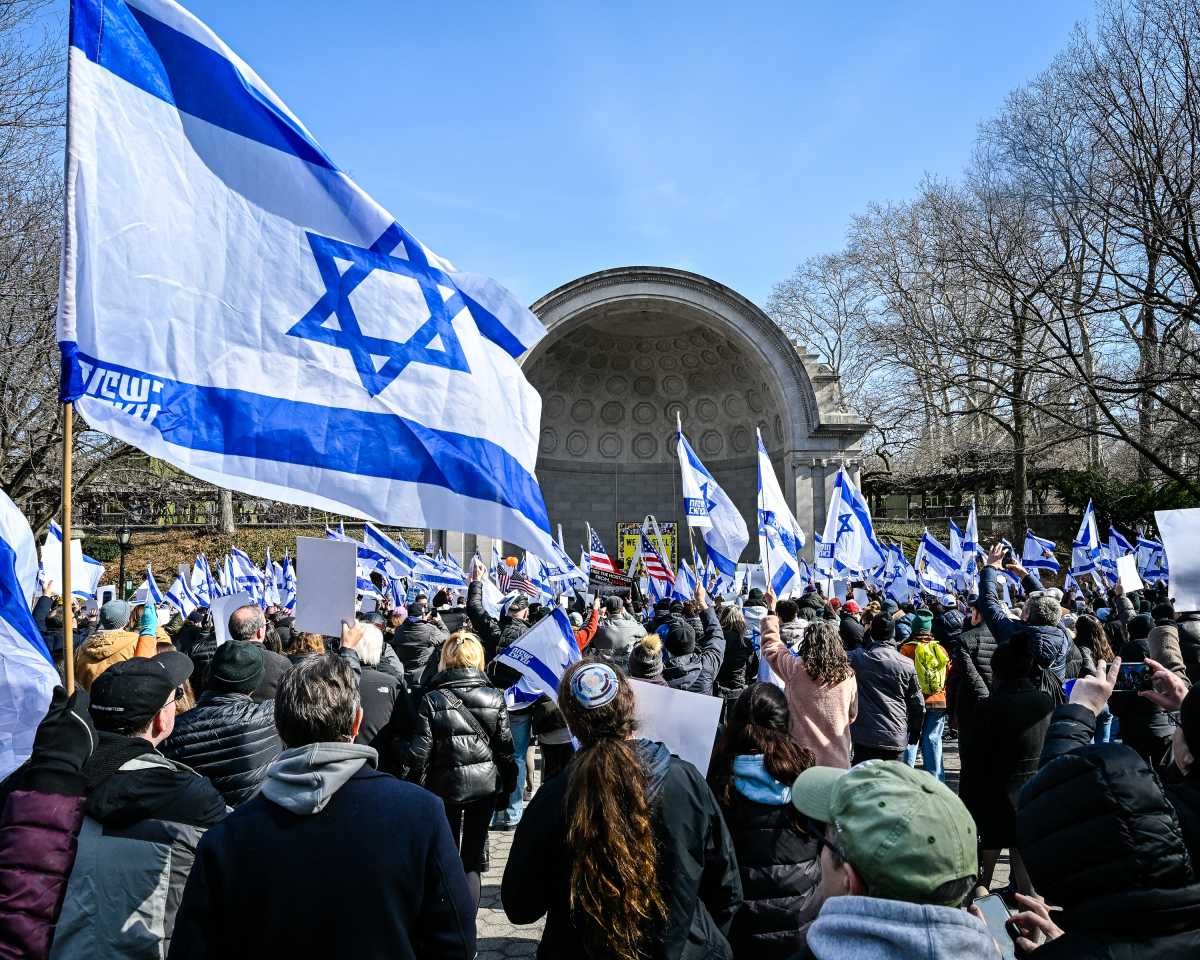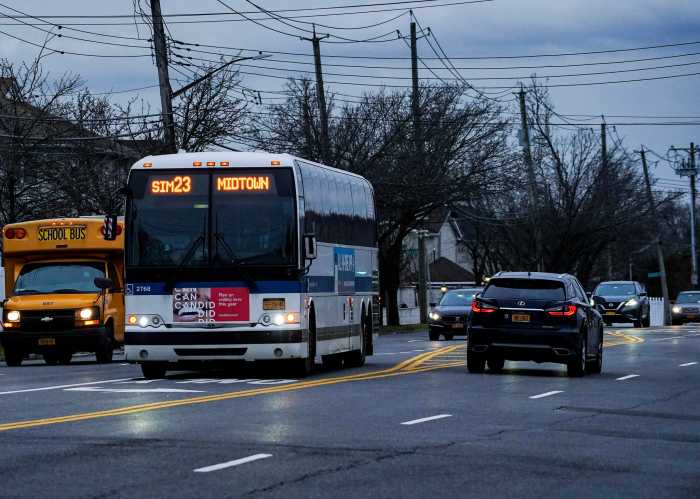By Alex Ginsberg
Frustration and fear gave way to calm and cooperation in western Queens last Thursday evening as the great blackout of 2003 brought activity in the borough's busiest section to a standstill.
With only a few stores falling victim to looters, the main challenges were for commuters to make their way home and for business owners to minimize food spoilage.
Thousands poured out of the darkened Queens Center Mall as the blackout hit shortly after 4 p.m., overflowing even the wide sidewalks of Queens Boulevard.
“The lights just went out,” said Kathy Cabas outside the mall as her 4-year-old son John Paul munched on a hot dog. “Everybody was panicking, running down the stairs.”
As confused shoppers stood in the harsh late afternoon heat, those lucky enough to have cars nearby found that every traffic light had become a four-way stop. At 57th Avenue and Queens Boulevard, members of a construction crew stopped their work and stepped into traffic, shepherding cars through the snarled intersection.
Queens Boulevard became an adventure as pedestrians darted across 12 lanes of unregulated traffic to reach the bus stops by Woodhaven Boulevard. There, the lines for buses stretched into the hundreds and wound around the corner on Hoffman Drive.
Across the boulevard inside St. John's Queens Hospital, a computer failure made it all but impossible for visitors to locate patients. But all else appeared normal, thanks to the building's back-up generator, which kept the air conditioning and vital systems running, said John Gissi, a member of the hospital's security team.
As the sun went down, thousands of commuters stranded in Manhattan streamed across the Queensboro Bridge. Isolated drivers on the lower roadway found themselves hemmed in by the sea of humanity.
Natalie Martiok, a law school student who completed the roughly 4 1/2-mile walk from 24th Street and Fifth Avenue in Manhattan to Queens Plaza North in Long Island City stopped to massage her red and blistered feet.
“I'm the luckiest one,” she said, noting that she was only minutes from her Astoria home.
Others, headed for destinations further into Queens, filed along into a steady stream that lined the sides of Northern Boulevard as far as Woodside.
Karina, a 26-year-old Forest Hills woman, said she left work in Manhattan at 5:15 p.m., had a few drinks in Midtown for a few hours and then began the walk over the Queensboro Bridge. At mid-span, she took a ride with two men who drove her the rest of the way home. She arrived in Forest Hills at midnight, the drive through Queens alone taking two hours.
Aside from isolated incidents of looting in Ridgewood, most neighborhoods in western Queens seemed to emerge from the blackout relatively unscathed, with ice cream stores, butchers and fishmongers taking the brunt of the losses.
“Everything … garbage,” said Miguel Ortega, the owner of Pollo al Carbon restaurant on Myrtle Avenue in Ridgewood. He said he had to throw out about $900 worth of chicken after the power went out. Electricity returned to most of Ridgewood at about 8:30 a.m.
A short distance away, Siegfried Strahl said all his raw beef and pork were fine due to the well-insulated refrigerator at Morscher's Pork Store.
But Strahl, who grew up in communist East Berlin, said the power outage brought him a touch of nostalgia.
“When I was a kid in the East, this was what we had … blackouts,” he said.
In Forest Hills, where the power also returned at about 8:30 a.m. Friday, Jens Reumematt, a chef at Soup's On, said the store lost all its ice cream and much of its raw meat.
“It's always costly,” he said of blackouts. “You never recuperate. Can't write it off. Insurance doesn't cover it.”
Elio Quarta, the owner of the Forest Hills Fishery, was luckier. He said the staff reacted quickly when the power failed, placing all the fish on ice in a vacuum box. Still, there was no fresh calamari to be had at the Fishery Friday morning.
Only three loyal customers were in the Esquire Diner on Cross Bay Boulevard in Howard Beach where, according to its owner Jimmy Athanasopoulos, lunchtime on a Friday is normally bustling. Athanasopoulos, who still did not have power in his restaurant as of noon on Friday, was running around his diner trying to give free coffee, rolls, bagels and muffins to the three customers who came to his Howard Beach eatery.
“Can I get some ice with this?” one woman joked.
“You can't give me any change for this because you can't use the cash register,” another man told a waitress.
It was well into Friday afternoon before Howard Beach got power back.
Astoria fared best of all, with electricity back on in most parts by 5 a.m. Friday. Still, many businesses along 31st Street closed early, including the Met supermarket near 24th Road. A Laundromat at 24th Avenue bore a handwritten sign reading, “Sorry, come back tomorrow.”
Mike's Diner on 31st Street used its generator to power the grills and the refrigerator. The restaurant served burgers and chicken all night long to diners on the sidewalk.
“We were crazy busy last night,” said the cashier, Elena Sergiadis, who worked from 7 p.m. last Thursday to 7 a.m. Friday but came in to work the register again at 4:30 p.m.
At the Radio Shack on 31st Street, customers waited 30 minutes just to get inside, where workers wrote out receipts by hand.
It was not without some irony that Peter Song, the manager of Hershey's Ice Cream shop on 31st Street, noted the one thing in Astoria that seemed to be working.
“It's amazing that the parking meters still work,” he said. “The lights are out but the meters are still going. I don't understand that.”
The TimesLedger staff contributed to this story.
Reach reporter Alex Ginsberg by e-mail at Timesledger@aol.com or call 718-229-0300, Ext. 157.

































